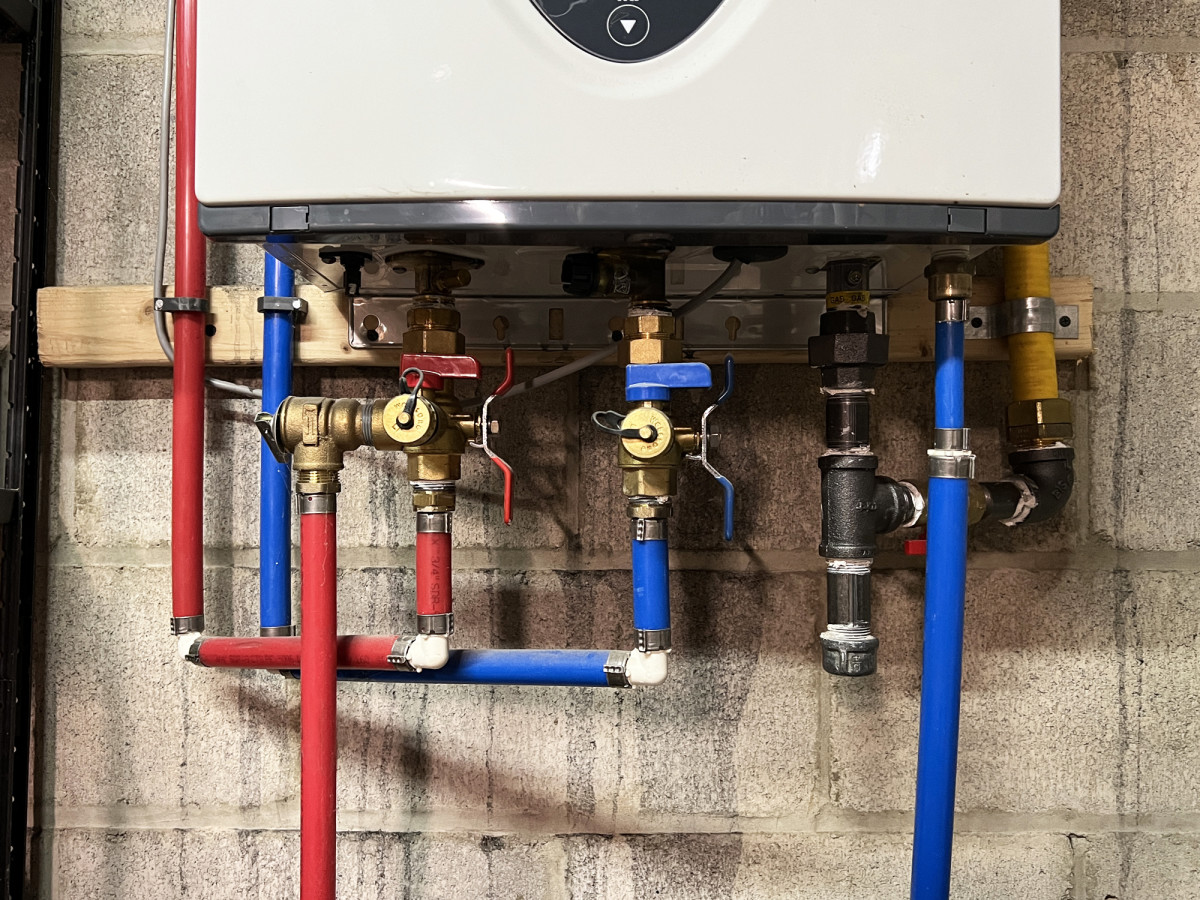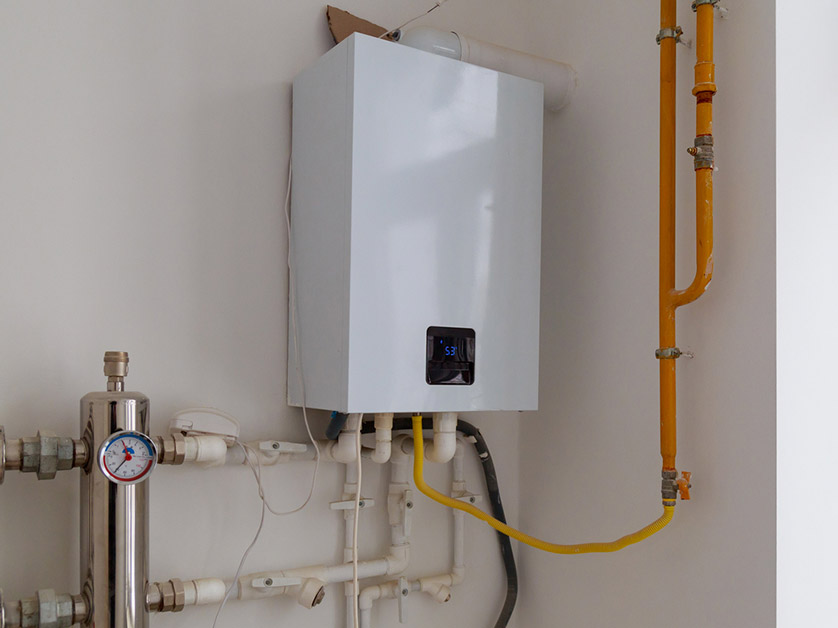Essential Causes Why Tankless Water Heaters Are Beneficial
Essential Causes Why Tankless Water Heaters Are Beneficial
Blog Article
This great article below on the subject of Why You Should Consider a Tankless Water Heater is indeed insightful. Check it out for yourself and figure out what you think of it.

In a globe where ease and efficiency reign supreme, it's no surprise that house owners are frequently looking for smarter means to manage their home's power intake and comfort. One technology that has continuously gained popularity is the tankless hot water heater. But exactly what makes these systems stand apart from the conventional tank-based versions the majority of us grew up with? Let's dive in and discover the benefits of tankless hot water heater, aiding you make a decision if it's time to make the button in your home.
Intro
Photo this: you step into the shower after a lengthy day, anticipating a calming cascade of hot water, only to be greeted by icy droplets due to the fact that the last person used all of it up. Sound acquainted? Standard water heaters store a fixed amount of hot water, suggesting you're at the mercy of that tank's supply. Tankless systems, on the other hand, warm water as needed. Say goodbye to going out mid-shower, say goodbye to fumbling with schedules simply to ensure hot water is available.
Comprehending Tankless Hot Water Heater
What Are Tankless Hot Water Heater?
Tankless water heaters, often referred to as on-demand or instantaneous water heaters, supply warm water only as it's required. Instead of storing gallons of pre-heated water, these systems kick into action the moment you activate the tap. Water passes through a warm exchanger, heating up in real-time, suggesting you obtain a continuous circulation of hot water without the need for a big container resting idly by.
How Do They Vary from Standard Systems?
Typical heating units hold a tank of hot water, making use of energy to maintain that tank at a constant temperature level. Tankless units get rid of the standing supply, reducing thrown away energy and the cumbersome footprint of a huge cylinder. Essentially, you're updating from a "stockpile" state of mind to a "made-to-order" approach.
Typical Types of Tankless Systems
Tankless hot water heater normally are available in two ranges: gas and electrical. Gas designs tend to deliver higher circulation rates, perfect for larger homes, while electric designs often offer smaller sized homes and are generally much easier to set up. Additionally, some systems are developed for point-of-use (serving one component) while others can manage the whole home's hot water demands.
Secret Advantages of Tankless Water Heaters
1. Countless Hot Water Supply
Ever needed to schedule showers so everyone gets their reasonable share of hot water? With tankless, that ends up being a thing of the past. As long as the heating unit's flow capability isn't exceeded, you can take back-to-back showers without developing into a popsicle.
2. Energy Effectiveness and Price Financial Savings
Say goodbye to heating a giant container's worth of water and keeping it toasty throughout the day. Tankless heating systems reduce standby power losses, which can decrease energy bills. While the preliminary cost may be higher, the long-term financial savings frequently warrant the investment.
3. Space-Saving Design
If your home is short on storage, removing the large storage tank liberates valuable area. Tankless systems are small and can frequently be placed on walls, tucked away in edges, or installed in tight utility storage rooms without monopolizing the entire area.
4. Longer Lifespan
A well-kept tankless water heater can outlive its tank-based relative. Standard tanks may last 10-15 years, while tankless models can keep chugging along for 20 years or even more, making them a solid investment in time.
5. Improved Water High Quality
Storing water in a tank can occasionally cause debris buildup or a slightly "off" preference. With tankless systems, fresh water is warmed instantly, minimizing the possibilities of sediment accumulation and potentially supplying cleaner-tasting water.
Factors to consider Prior To Switching
Though the benefits are compelling, it's important to take into consideration a couple of aspects prior to fully devoting.
Initial Financial Investment Costs
Tankless heating systems generally include a higher upfront cost. In between the device itself and possible installation adjustments, the initial expense could give you sticker label shock. However bear in mind to see it as a long-term financial investment.
Installment Requirements
Depending on your home's facilities, you could need additional electrical capacity or gas line upgrades. Ensure you recognize the setup demands and consult with an expert to avoid shocks.
Assessing Your Home's Water Use Patterns
If your family concurrently uses multiple components with high hot water need, see to it the unit's flow rate meets your demands. Recognizing your usage patterns helps you pick the ideal size and type of tankless heating system.
Maintenance and Treatment Tips
Tankless systems are reasonably low maintenance, however they aren't set-it-and-forget-it devices.
Routine Cleansing and Descaling
Tough water minerals can build up in the warmth exchanger, impacting efficiency. Regular descaling (usually recommended annually) keeps the device running at peak performance.
Annual Professional Assessments
A yearly checkup from a professional makes certain small problems are captured early. They'll evaluate the device's efficiency, try to find leaks, and aid maintain optimum effectiveness.
Making Sure Correct Air Flow
For gas versions, appropriate air flow is necessary to securely eliminate exhaust gases. Ensure airing vent systems are clean and correctly set up to stop any kind of prospective security threats.
Contrasting Different Brands and Versions
Not all tankless water heaters are created equal.
Researching Reputable Manufacturers
Look for credible brand names with a background of producing top quality systems. A dependable producer commonly offers far better consumer support and longer service warranties.
Reading Evaluations and Customer Responses
Individual testimonials and responses from next-door neighbors or good friends that have actually gone tankless can offer beneficial understandings. Often, real-life experiences can be more telling than advertising brochures.
Installation: Do It Yourself or Specialist?
While some homeowners cherish dealing with projects themselves, tankless installation might not be the most effective time to burst out the tool kit.
Pros and Cons of DIY Installation
A DIY mount can conserve cash, but it features risks. Wrong installment can cause inadequacy or security worries. If you're handy and have experience, it might be viable-- however wage care.
When to Call a Specialist Plumbing Technician
For most, calling a professional ensures everything's done properly. An expert plumber comprehends local codes, sizing requirements, and airing vent criteria, minimizing the danger of problems.
Taking full advantage of Efficiency
You've purchased a tankless device-- currently maximize its efficiency.
Optimal Temperature Level Settings
Many people set their devices between 120-140 F. Adjusting the temperature level can enhance convenience and financial savings. Experiment to locate a wonderful area that does not throw away power.
Pairing with Low-Flow Fixtures
Intend to stretch your unit's capacities? Think about installing low-flow showerheads and faucets. They lower water use, allowing your tankless system to provide a constant stream of warm water without stressing.
Environmental Effect
Tankless water heaters align with greener living goals.
Lowered Carbon Footprint
By utilizing less power and just heating water as required, tankless systems can reduce your home's carbon impact, reducing your ecological influence.
Preserving Natural Resources
Less energy intake and much less lost hot water convert into fewer natural deposits being utilized, an environmental win-win.
That Benefits A Lot Of from Tankless Heaters?
The beauty of tankless heating units is that they can suit a range of households.
Big Family Members vs. Solitary Occupants
Large families might enjoy the limitless warm water supply, while single occupants value the power financial savings from not warming an entire storage tank for just a single person's early morning shower.
Homeowners with Minimal Space
If your home is short on square footage, shedding the bulky storage tank frees up room for other fundamentals-- or maybe just extra breathing space.
Eco-Conscious Customers
Going tankless aligns with environmentally friendly worths, ensuring you're not losing power or resources.
Future Trends in Tankless Water Heaters
The globe of home devices is ever-evolving, and tankless water heaters are no exemption.
Smart Home Combination
Envision readjusting your hot water heater's temperature through an application or receiving maintenance informs on your phone. As smart home technology advances, we'll see more connectivity and comfort.
Improvements in Technology
R&D is frequently enhancing heat exchangers, making units extra efficient and sturdy. Future models could be even quieter, extra portable, and much better fit for differing environments.
Verdict
Selecting a tankless hot water heater is greater than just updating your home's warm water system; it's purchasing long-term comfort, power performance, and a greener way of life. By considering your home's water usage, bearing in mind setup requirements, and devoting to regular upkeep, you can delight in a constant stream of hot water without the baggage of a cumbersome tank. As innovation advances, you can eagerly anticipate even smarter, a lot more reliable tankless solutions that not only make your life much easier yet likewise profit the world.
Pros and Cons of Tankless Water Heaters
Tankless Water Heater Pros
Saves Energy: Simply put, you re spending less energy to create hot water, so your total carbon footprint goes down, not to mention your bills. Lasts Longer Than Storage Tanks: Storage tank units need to be replaced every 15 years or so. But tankless units? They can last for 30 years before they give out on you. Constant Hot Water: Need to take a shower and don t want the water running cold? Awesome it won t. The water will stay hot the entire time because it creates hot water on demand. Saves You Money: Less water usage equals less money. Beyond that, you re not paying to keep water hot 24/7. Those savings add up quickly. Better for the Environment: Less water waste is better for everyone. It saves you money, but it s also environmentally conscious at the same time. Tankless Water Heater Cons
It Can Take a Minute: Depending on your specific unit and its placement, it can take anywhere from 10 seconds to 2 minutes to fully heat up. Because there s no storage tank, it heats water as you need it. Upfront Purchase Price: While we talked about their longevity, there s sticker shock when you look at brand-new tankless units to install. It pays for itself, but it s still a big chunk of change at first. Has its Limits: If you run multiple appliances at once, such as the dishwasher, washing machine, and maybe you take a shower at the same time, there might not be enough hot water. https://www.airsouthnow.com/blog/water-heater-service/pros-and-cons-of-tankless-water-heaters/

I'm just very fascinated by Six Benefits of a Tankless Hot Water Heater and I am assuming you appreciated our piece. Enjoyed our write up? Please share it. Let someone else check it out. I am grateful for being here. Revisit us soon.
Click Here Report this page